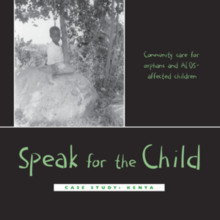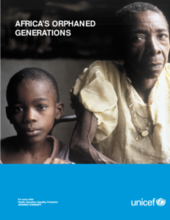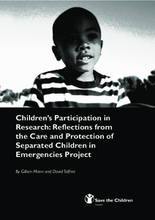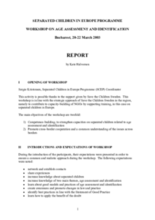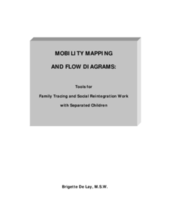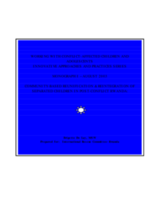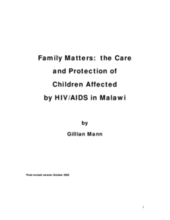Displaying 14021 - 14030 of 14347
A case study of a pilot project in western Kenya focused on community-based orphan care and support. Includes a description of the project activities, including community mobilization and needs assessment, as well as lessons learned and suggestions for improvement.
Current statistics and projections of HIV prevalence and impact on children and families in Sub-Saharan Africa. Outlines a strategy for action which includes collaborative efforts on the part of governments and child-focused agencies to strengthen families, build community capacity and increase awareness.
This paper defines concepts and highlights key topics around orphaned and vulnerable children. It stresses the importance of creating a child-friendly environment and utilizing a holistic approach to care, both which identify children as central participants in decision-making about care and placement.
Paper described ways in which children separated in emergencies have been involved in research about their community and lives. It focuses on identifying the most appropriate and achievable way to involve children given the reality of their context and circumstances, and includes an appendix of specific games to encourage child participation.
Summary of a workshop to address age assessment, identification and reception of separated children to promote guardianship, family tracing and reunification. Focuses on Romania, Bulgaria and Hungary.
Overview of a research study which provides guidelines for care of separated children in large-scale emergencies, focusing on the negative impact of residential care, extended family care, spontaneous and agency fostering, adoption, and alternative placements for adolescents.
Detailed guidance on using drawing with children to facilitate documentation and tracing efforts, as well as a tool for reintegrating separated children into families.
Programmatic methodology and key steps for reintegrating institutionalized children back into the community in a post-conflict environment. Contains comprehensive assessment toolkit in document annex.
A research study which explores the overt and covert abuse and neglect experienced by children, especially by those who work and/or live on the streets, in three Nigerian towns. Includes a brief discussion of the African Network on Prevention and Protection against Child Abuse and Neglect (ANPPCAN) in Nigeria.
This paper describes a qualitative research study conducted in three villages in Malawi. It explores community mobilization and kinship care, as well as striking discrepancies between the perceptions of adults and children regarding care and support. The paper advocates for increased child decision-making, childcare protection policy, and support networks for orphaned children.

